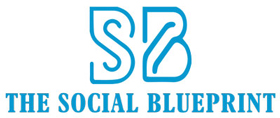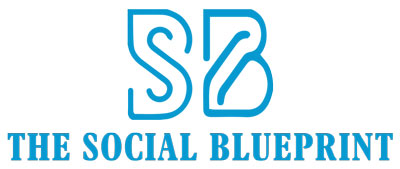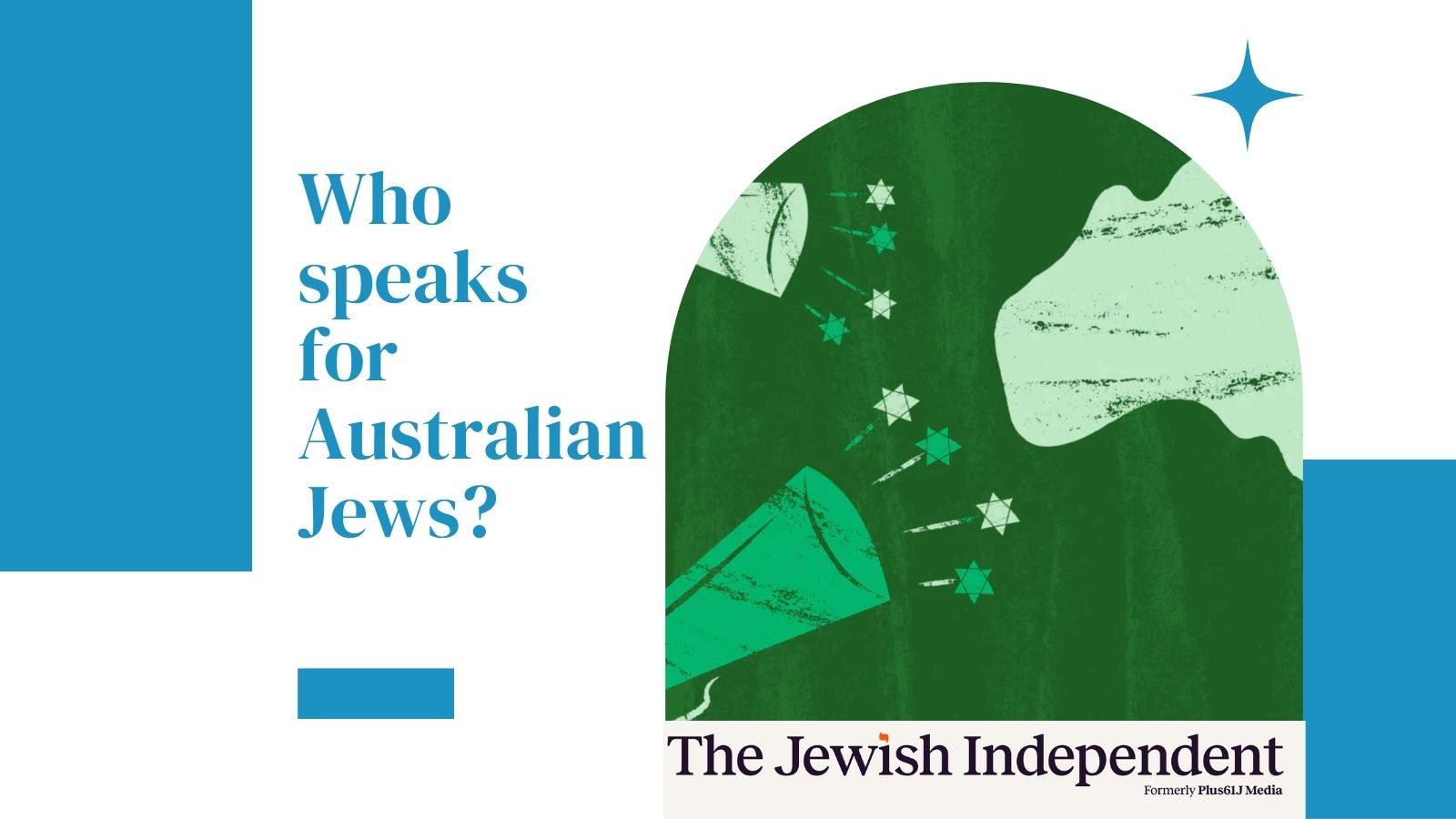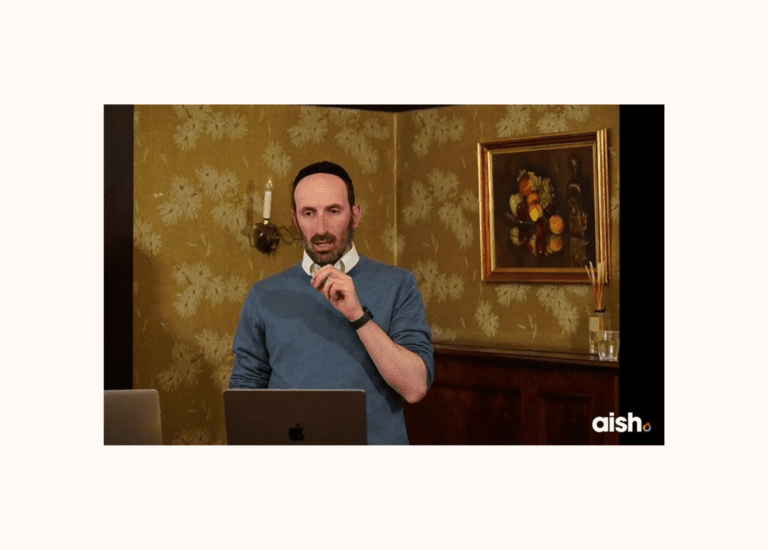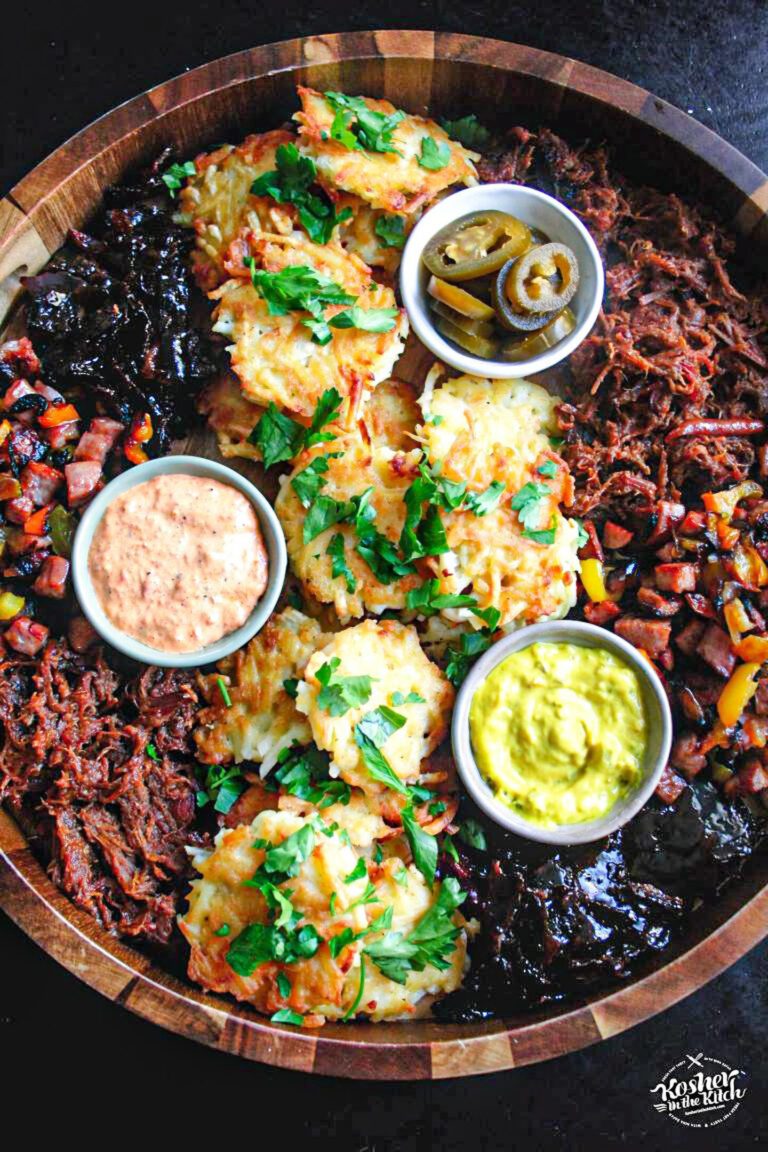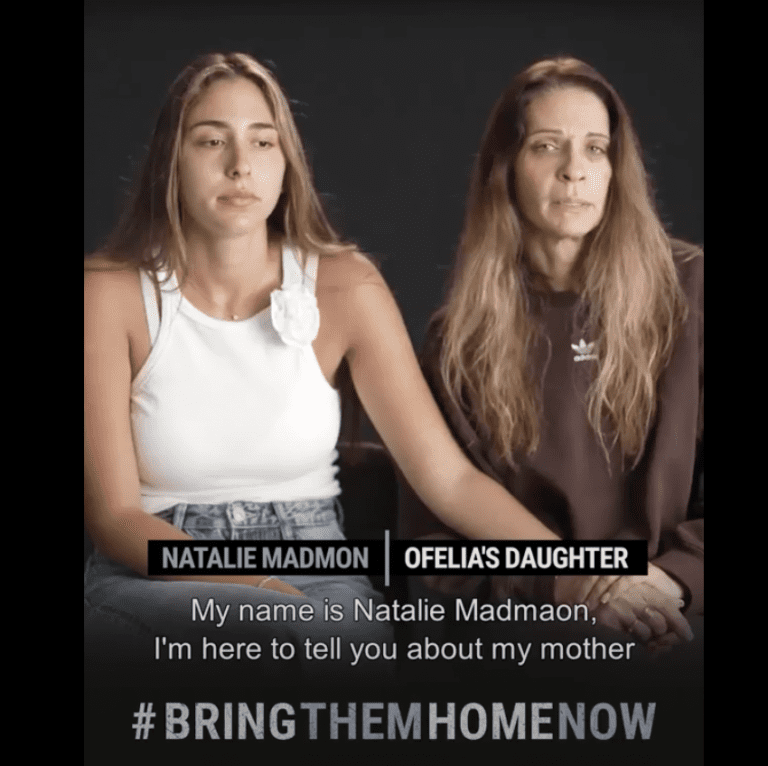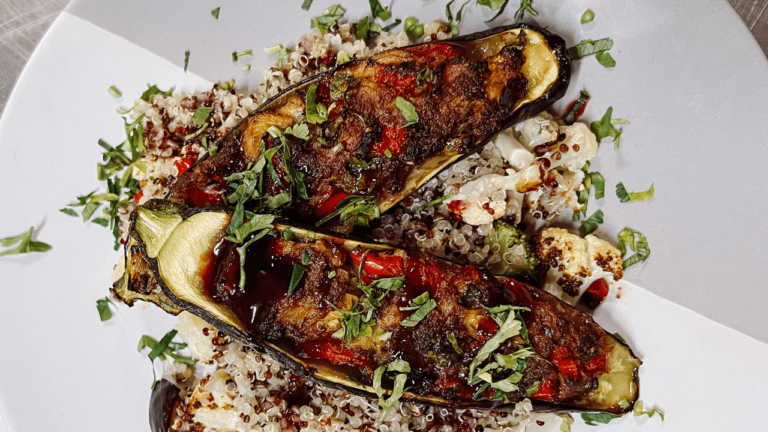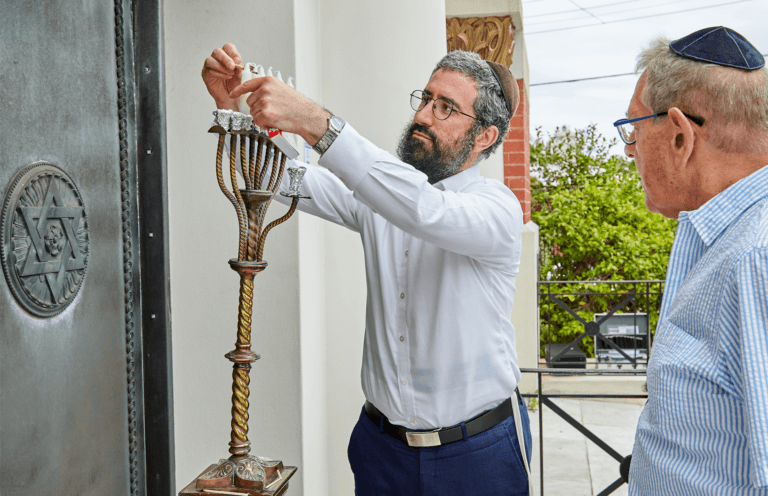A culture of ‘two Jews, three opinions’ means any expectation that the Australian Jewish community will speak with a single voice is doomed. But not all those who speak on behalf of the community have equal claims to representativeness.
DEBORAH STONE
Published: 20 March 2024
Last updated: 22 March 2024
Government, media, or other communities seeking to understand the Australian “Jewish community view” on any given issue soon learn that there is no such thing.
The Jewish community is diverse, opinionated and disproportionately articulate. The 100,000 Jews who make up less than 0.4% of Australia’s population run the gamut of opinion on virtually any topic.
The number of organisations who are described as speaking on behalf of Australian Jews is growing and contemporary public space makes it increasingly easy for varied groups to find a soapbox.
Call yourself a “Council”, an “Institute” or an “Association” and the opinions of any dozen randoms can be broadcast with a veneer of officialdom.
Journalists can make easy work out of “dial-a-quote” spokesmen (they are almost always men) who can be relied on to express undifferentiated outrage at the smallest hint of antisemitism or to cheerlead Israel, whatever the context.
Social media favours simplification over moderation, amplifying exponentially those who are good at grabbing attention.
Official bodies and anyone inclined to caveats or the honest expression of ambivalence must compete with stentorian voices that make better headlines.
The groups covered in this article are those that either claim to speak on behalf of the community or are frequently treated as doing so. There are, of course, many other Jewish organisations that represent segments of the community and are sometimes quoted as Jewish voices.
We aim to help you understand who you are really listening to, ranking significant Jewish media players according to their representativeness.
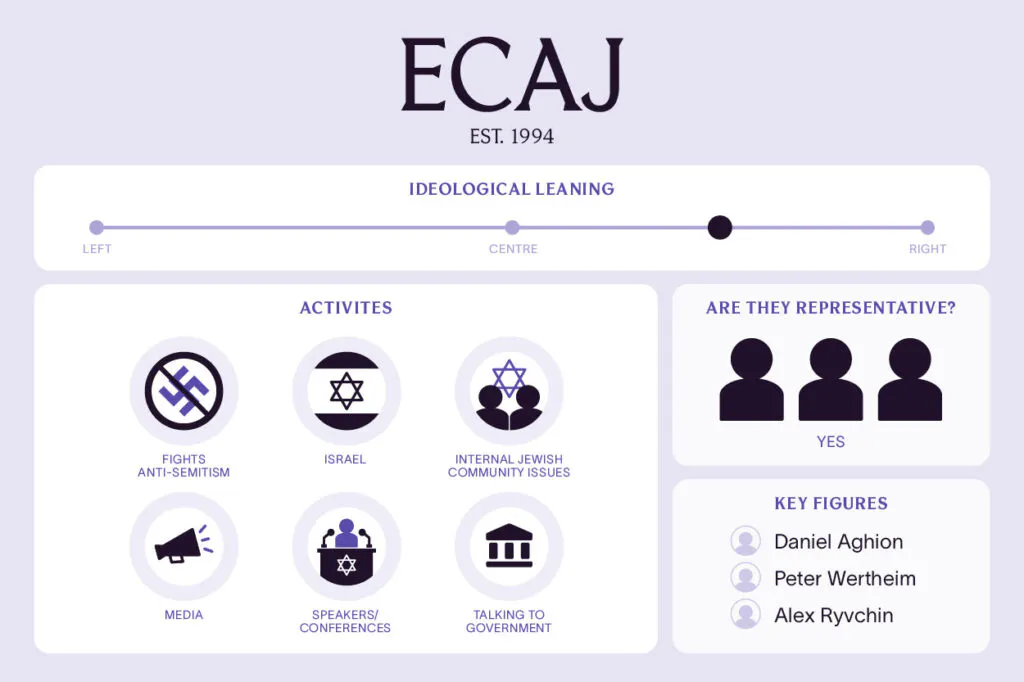
The Executive Council of Australian Jewry (ECAJ) is the only organisation that has a formal claim to representing the entire Australian Jewish community. It is comprised of councillors appointed through constituent state peak bodies and affiliate national organisations.
The ECAJ speaks for Jewish organisations rather than Jewish people. As in any form of representative democracy, there can be a difference between popular opinion and the policy of community leaders.
It has a strong focus on public policy, particularly anything related to antisemitism, multiculturalism, or security. Its official role is recognised by the Federal Government, which recently awarded it $25 million to coordinate the security needs of the Jewish community across Australia.
Its constitution also gives it the role of “strengthening and supporting the connection of Australian Jewry with the State of Israel”. It consistently supports Israel’s actions and resists criticism of Israel.
Officially the ECAJ is apolitical. Its policies are frequently progressive in orientation, supporting a two-state solution, rejecting religious rights that discriminate against LGBT+ people, and emphasising multiculturalism. But it has always leaned right and has drifted further from the centre as the political left has aligned itself more closely with Palestinian politics, and since longstanding CEO Peter Wertheim has been joined by firebrand Alex Ryvchin.
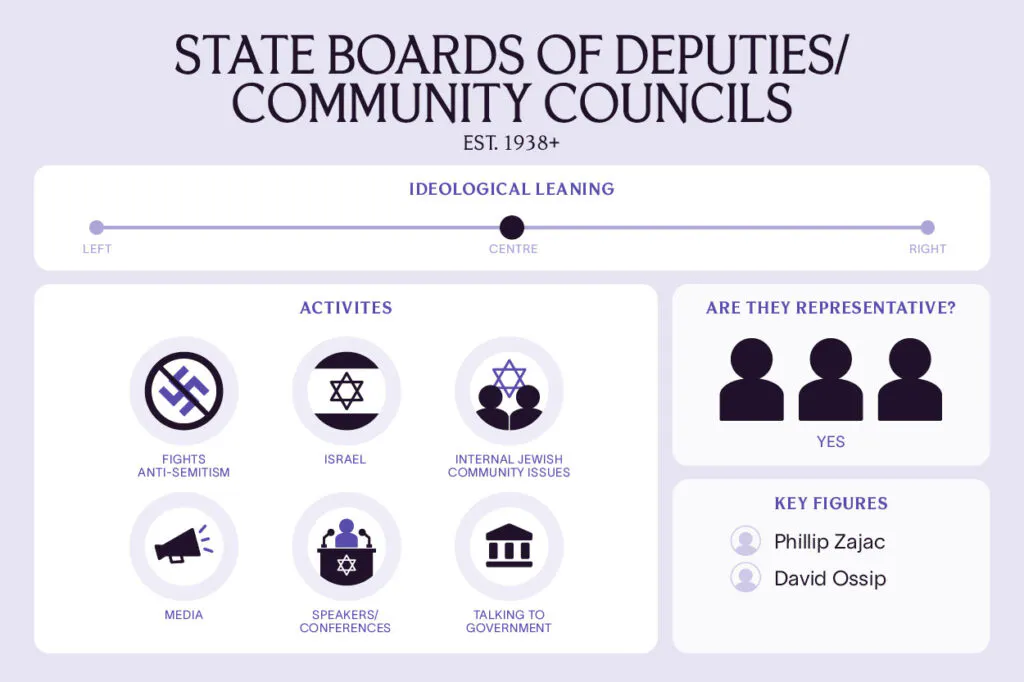
Each state (except Tasmania) has a peak body which combines the interests of communal organisations: NSW Jewish Board of Deputies (NSWJBD), Jewish Community Council of Victoria (JCCV), Jewish Community Council of WA (JCCWA), Queensland Jewish Board of Deputies (QJBD), and Jewish Community Council of South Australia (JCCSA).
State peak bodies work closely with state governments and have been particularly strong in pursuing state-based legislation criminalising Nazi symbols.
The NSWJBD and JCCV each has more than 50 affiliate organisations running across the political and cultural gamut – and sometimes creating passionate internal disputes.
Being closer to their varied constituent bodies and more focused on local issues than the ECAJ frequently makes them more centrist and responsive to diversity. The JCCV has shown leadership on child abuse and the NSWJBD runs an LGBT+ mentorship program.
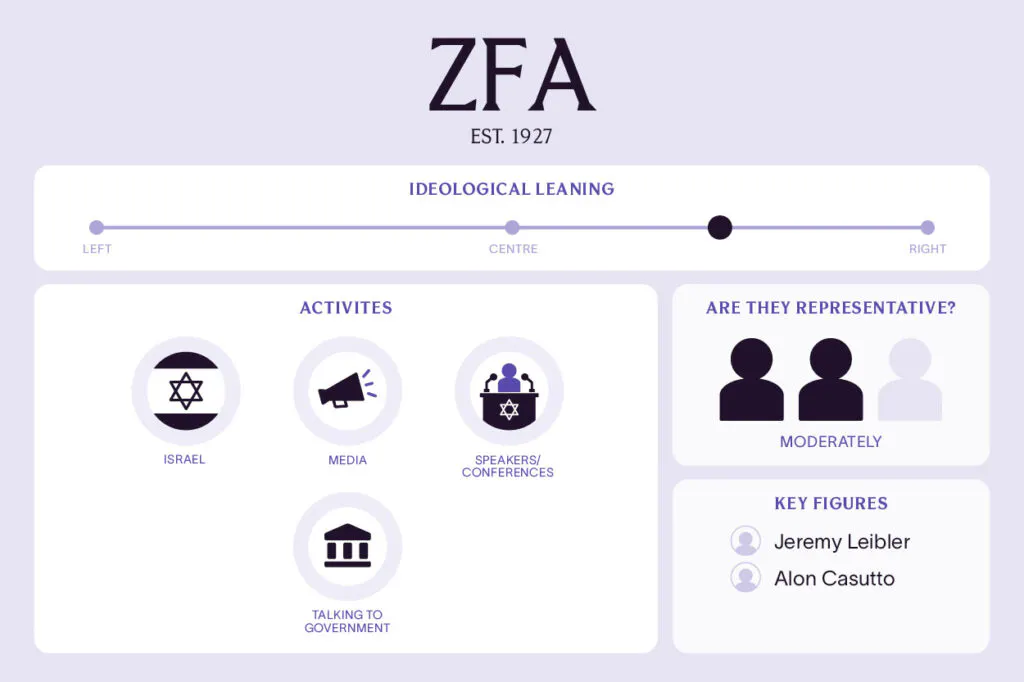
The Zionist Federation (ZFA) of Australia represents Australian Zionist organisations – not Australian Jews.
But it’s complicated. For many Australian Jews, their primary Jewish affiliation is through a Zionist organisation such as a youth group or a support organisation for an Israeli cause. Zionism is threaded through Australian Jewish life and community organisations, from the Maccabi sporting club to the Australian Union of Jewish Students, which are among the 20 organisational affiliates of the ZFA.
Traditionally, the ZFA has supported Israel without question and that is still its primary approach, but some cracks appeared in its response to the inclusion Ben Gvir’s extremist Religious Zionists in the current Israeli government, and the ZFA is a little more willing to brook criticism of Israel than previously.
The ZFA is a highly active and responsive media player, efficiently churning out media statements on any issues vaguely related to Israel and occasionally straying beyond its brief to comment on unrelated Jewish community issues, such as the Malka Leifer verdict.
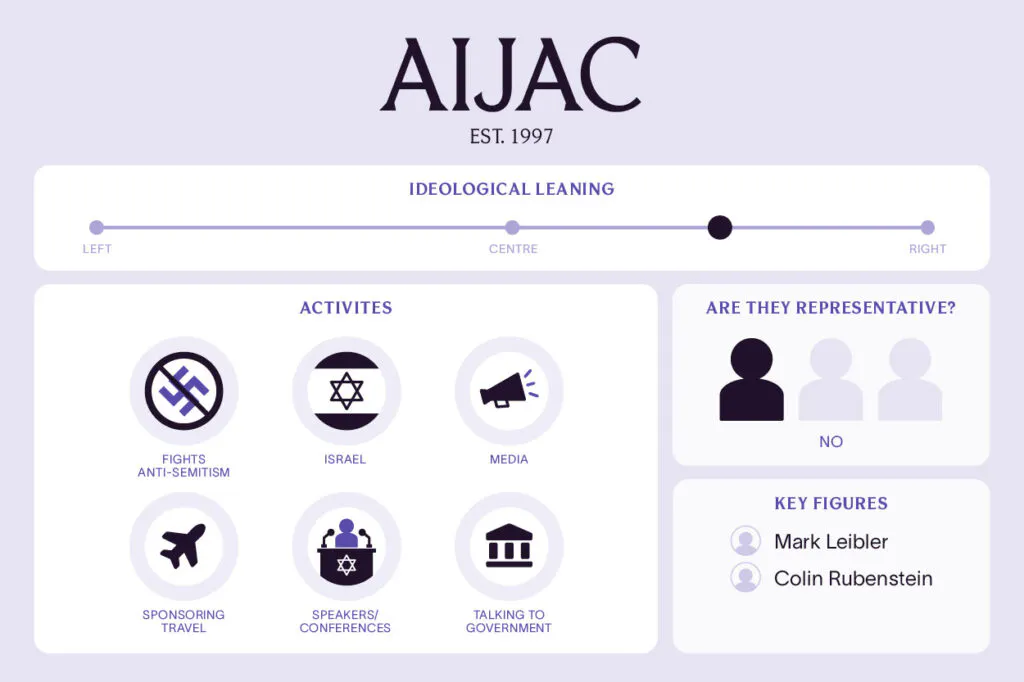
The Australia/Israel Jewish Affairs Council (AIJAC) is a self-appointed think tank with considerable influence, thanks to generous private funding and a high-functioning professional staff. Chairman Mark Leibler and Executive Director Colin Rubenstein, a former politics academic, have run it since it was established in 1997. Lately Executive Manager Joel Burnie has done much of its media.
Its influence derives primarily from direct relationships. Most powerful is its Rambam Israel Fellowship program, which sponsors visits to Israel by selected senior journalists, politicians, political advisers, senior public servants and student leaders. These trips provide both effective educational opportunities and lobbying pathways — and have sometimes been targeted as an example of an insidious “Jewish lobby”.
AIJAC makes public statements on almost every issue related to Israel or the Jewish community. It tends to centre-right positions, but supports the two-state solution and expressed concern about Israel’s judicial overhaul proposals. On the Israel-Hamas war, its strong support of Israel has been carefully tempered by awareness of Gaza’s humanitarian crisis.
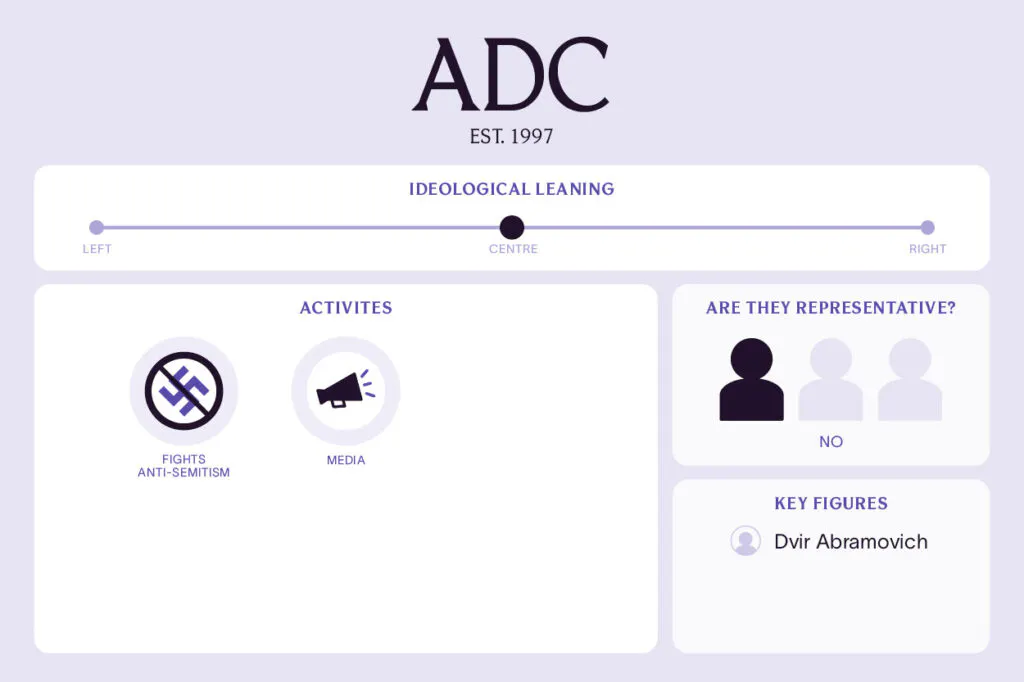
The Anti-Defamation Commission (ADC) is wholly focused on fighting antisemitism.
It is primarily a platform for Chairman Dvir Abramovich, a Jewish studies academic who posts extensively on social media and is frequently quoted in the media response to antisemitic incidents.
In the past, the ADC drew its authority from its research, interfaith and educational activities, but most of these programs are no longer functioning.
The ADC is funded through direct donations and does not have a membership base. It was established by B’nai B’rith in 1979 to mirror the prominent US organisation the Anti-Defamation League (ADL) but has since split from the parent organisation.
(Disclaimer: Deborah Stone is a former Executive Director of the ADC.)
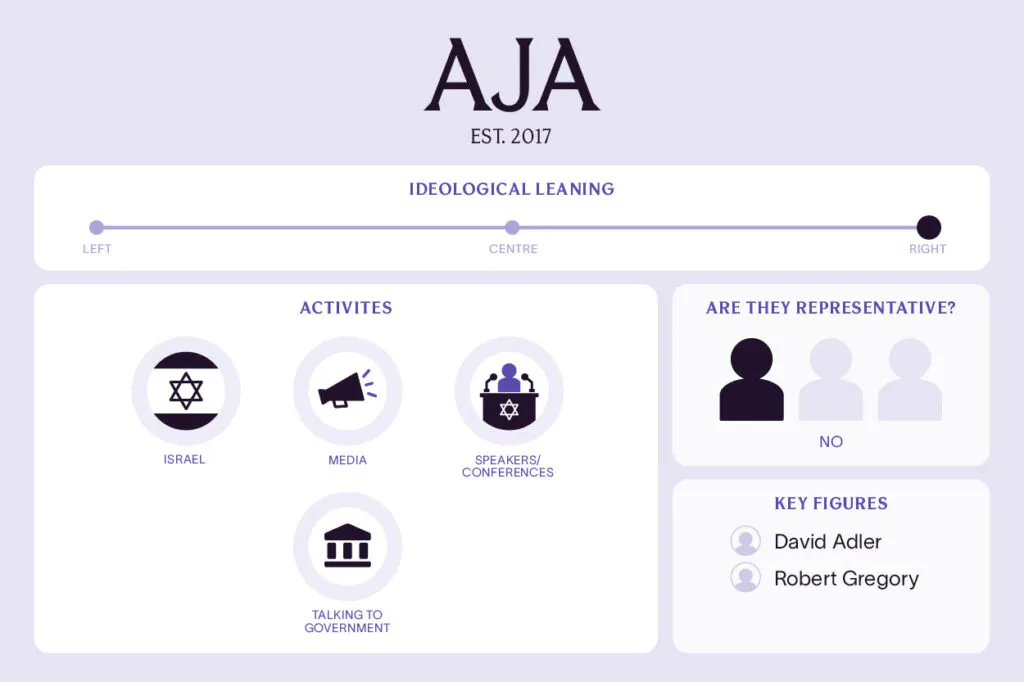
The Australian Jewish Association (AJA) is a conservative organisation which advocates traditionalist social concepts (“Torah values”) and endorses settlement in the West Bank (“Judea and Samaria”).
It is passionately supportive of the Israeli right and the Israel Defence Forces, and has also been active on a variety of local issues including campaigning against the Voice and denouncing the “transgender agenda”.
The AJA describes itself as centre-right, but the organisation’s policies on both Israel and local issues place it in the far-right camp.
It is a membership-based organisation but will not disclose membership numbers. President David Adler, a medical doctor, and CEO Robert Gregory are the organisation’s public face.
Although only established in 2017, the AJA has gained some prominence through effective use of social media and strong contacts in the right-leaning mainstream media. It is frequently quoted in The Australian and on Sky News, in particular.
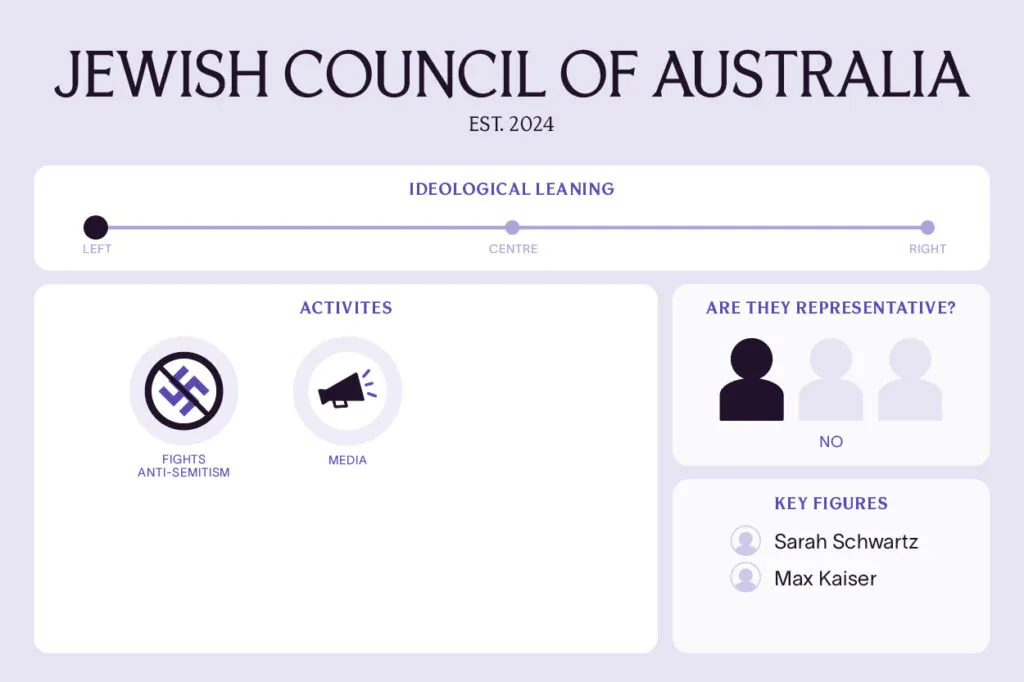
The Jewish Council of Australia is the latest addition to the long list of organisations speaking for Jews. (Its acronym JCA is confusing because it is already used by the Jewish Communal Appeal, the NSW’s community’s primary fundraising organisation.)
The Jewish Council has been set up over the past couple of months to represent the minority of Australian Jews who make a clear distinction between Jewish identity and attachment to Israel. It seeks to counter antisemitism without conflating it with anti-Zionism.
The Jewish Council is too new to have a firm base or to have been widely quoted. It does not claim to represent all Jews but its importance lies in the section of the community it speaks for – a younger demographic unwilling to be represented by mainstream community organisations.
Its spokespeople Sarah Schwartz, a lawyer, and Max Kaiser, an academic specialising in antisemitism, are both a generation younger than most other Jewish community spokespeople.
Its supporters align with the left and are highly critical of Israel. The humanitarian crisis in Gaza resulting from Israel’s war against Hamas has hardened attitudes to Israel in this demographic, and they are no longer willing to choose between their Jewish identity and their belief in the Palestinian cause. We can expect to hear more from this group.
Research: Oscar Kaspi-Crutchett

